Pushing Logs to S3
Review this summary of some common third-party tools that are used by ChaosSearch users to push logs to AWS S3.
Supported Tools:
NOTEThis topic contains examples that could be helpful suggestions for your environment. Review these examples carefully because some configuration and special cases might be required to meet your specific use-case. Links to documentation are provided before each example.
Logstash
Logstash is an application for ingesting and transforming content from multiple sources before sending it to your storage location. More information is available at:
https://www.elastic.co/guide/en/logstash/current/plugins-outputs-s3.html
A sample Logstash configuration file for S3 storage and a ChaosSearch implementation follows:
input{
file{
path => "/Users/chaossearch/*"
start_position => beginning
}
}
filter{
dissect { mapping => { "message" => "%{} %{} %{} %{y} %{} %{} %{}]:%{restOfLine}" } }
json { source => "restOfLine" }
mutate {
remove_field => [ "message", "restOfLine" ]
}
}
output{
stdout { codec => rubydebug }
s3{
access_key_id => "ACCESS-KEY-HERE"
secret_access_key => "SECRET-ACCESS-KEY-HERE"
region => "us-east-1"
bucket => "S3-BUCKET-HERE"
size_file => 2048
time_file => 3
codec => json_lines
canned_acl => "private"
temporary_directory => "C:\\Users\\Administrator\\s3tmp"
}
}FluentD
FluentD is an open-source data collector that can help to unify data collection and consumption. It attempts to unify the file formats by structuring data in JSON format as much as possible. More information is available at:
https://docs.fluentd.org/output/s3
A sample FluentD configuration file for S3 storage and a ChaosSearch implementation follows:
<match pattern>
@type s3
aws_key_id YOUR_AWS_KEY_ID
aws_sec_key YOUR_AWS_SECRET_KEY
s3_bucket YOUR_S3_BUCKET_NAME
s3_region ap-northeast-1
path logs/
# if you want to use ${tag} or %Y/%m/%d/ like syntax in path / s3_object_key_format,
# need to specify tag for ${tag} and time for %Y/%m/%d in <buffer> argument.
<buffer tag,time>
@type file
path /var/log/fluent/s3
timekey 3600 # 1 hour partition
timekey_wait 10m
timekey_use_utc true # use utc
chunk_limit_size 256m
</buffer>
</match>Fluent Bit
Fluent Bit is an alternative to FluentD and Logstash for log shipping, and offers high performance with low resource consumption. Fluent Bit is designed and built on top of the FluentD architecture and general design. More information about how Fluent Bit can send content to S3 is available at Amazon S3.
More information about how AWS credentials are fetched can be found in the Fluent Bit documentation on GitHub.
A sample Fluent Bit configuration file for S3 storage and a ChaosSearch implementation follows:
[OUTPUT]
Name s3
Match *
bucket YOUR_S3_BUCKET_NAME
region us-east-1
store_dir /home/ec2-user/buffer
s3_key_format /fluent-bit-logs/$TAG/%Y/%m/%d/%H
total_file_size 50M
upload_timeout 10mCloudflare Logs via LogPusher
Cloudflare Enterprise provides very detailed logs to customers for all types of troubleshooting and investigation. Typically Cloudflare Enterprise users push their request or event logs to their cloud service storage using Logpush, which can be configured from the Cloudflare dashboard or API. More information is available at:
https://developers.cloudflare.com/logs/
Sample configuration screens for a Cloudflare Logpush setup for S3 storage and a ChaosSearch implementation follow:
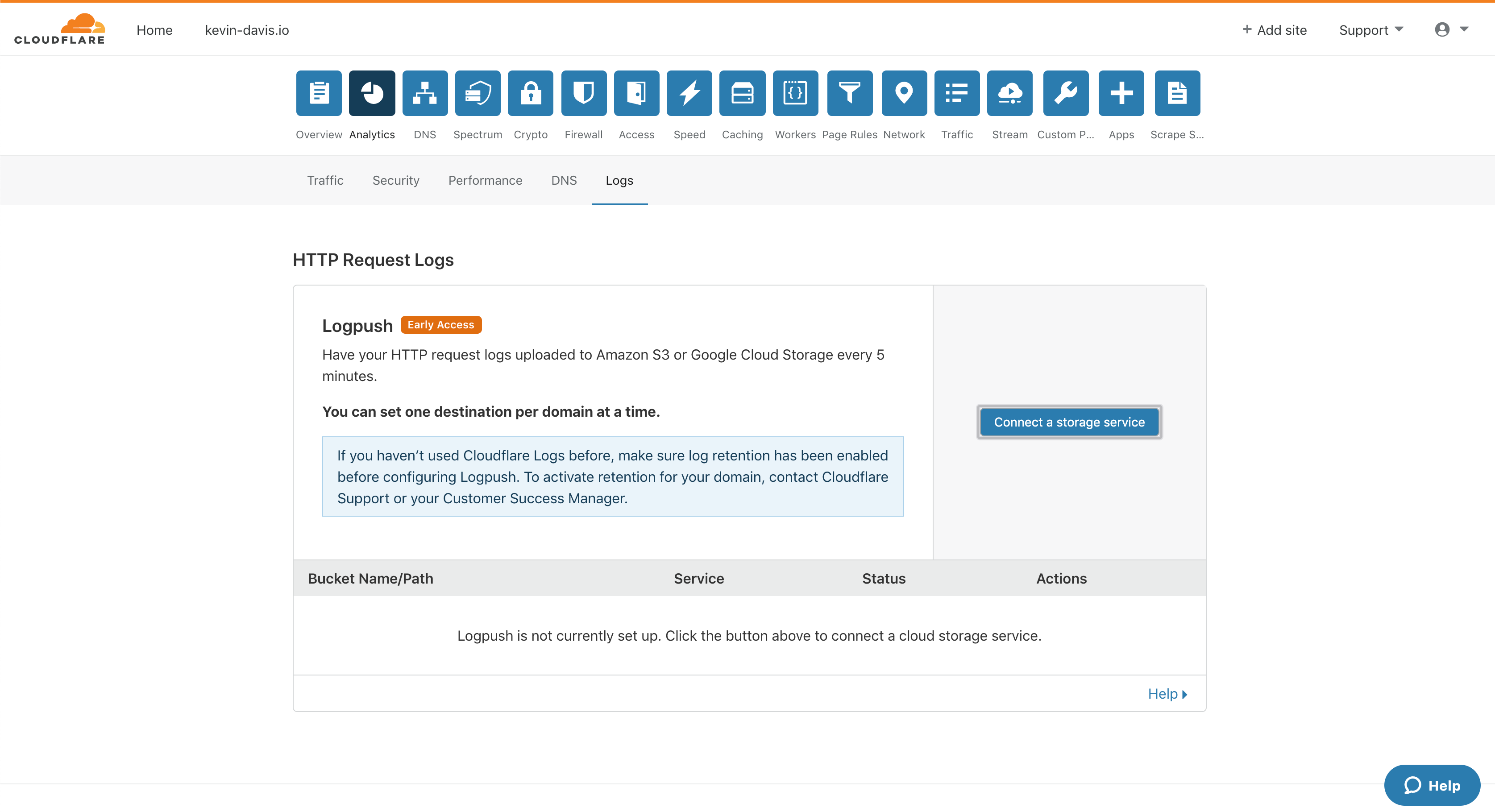
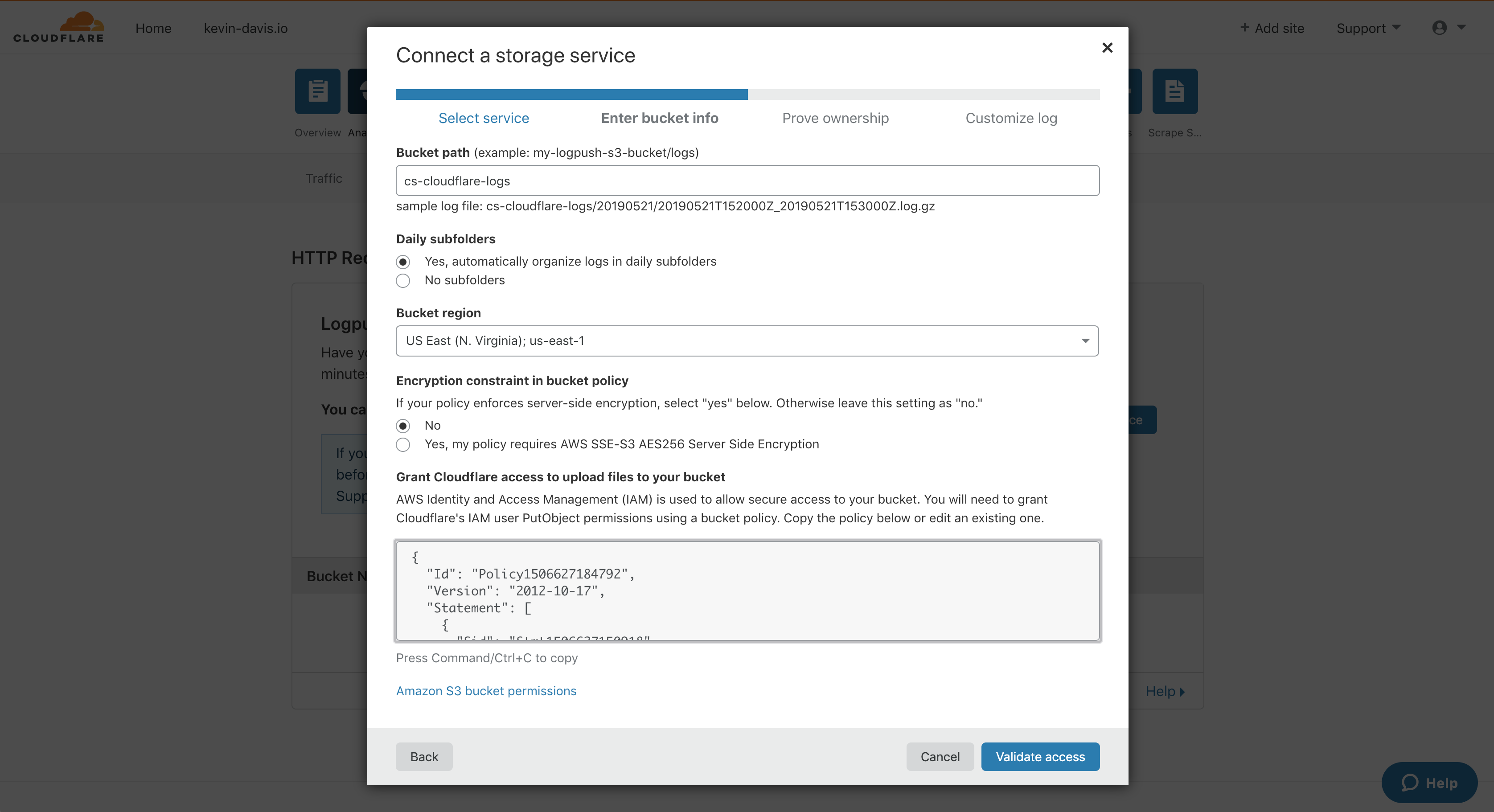
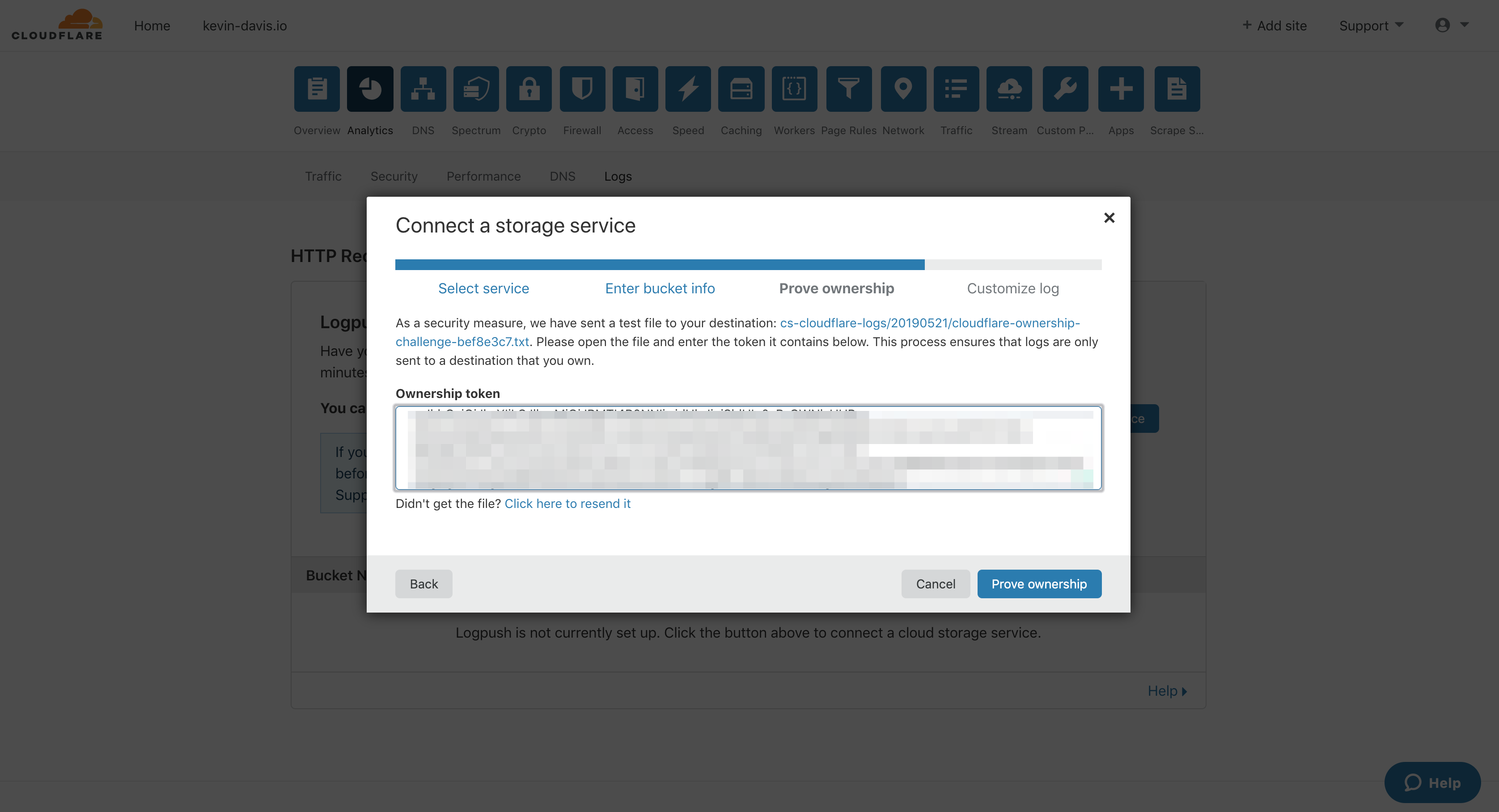
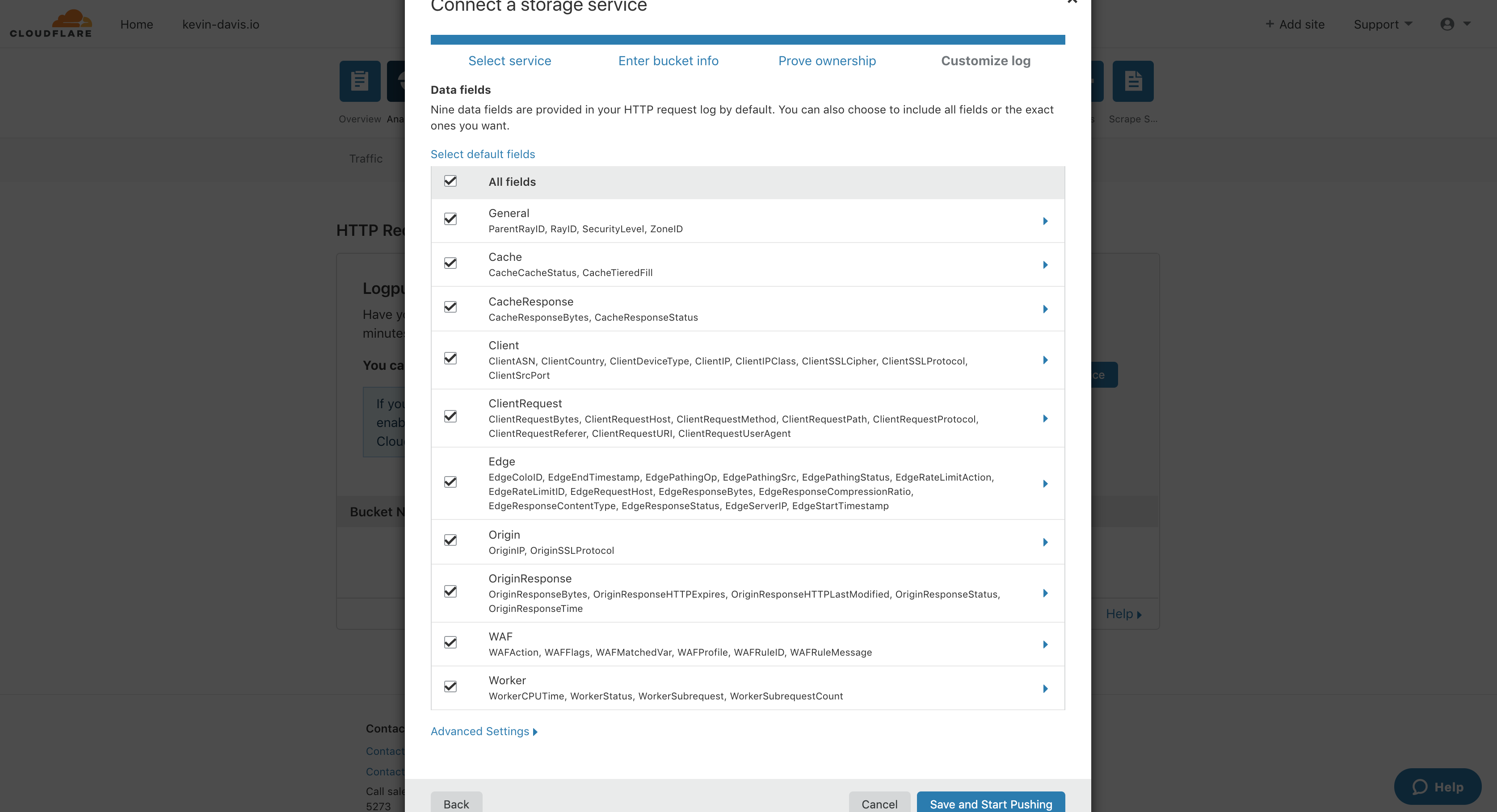
Fastly - Log Streaming
Fastly has a Log Streaming feature that allows you to automatically save logs to a third-party service for storage and analysis. More information is available at:
https://docs.fastly.com/en/guides/log-streaming-amazon-s3
A sample screen for creating a Fastly S3 logging endpoint configuration for a ChaosSearch implementation follows:
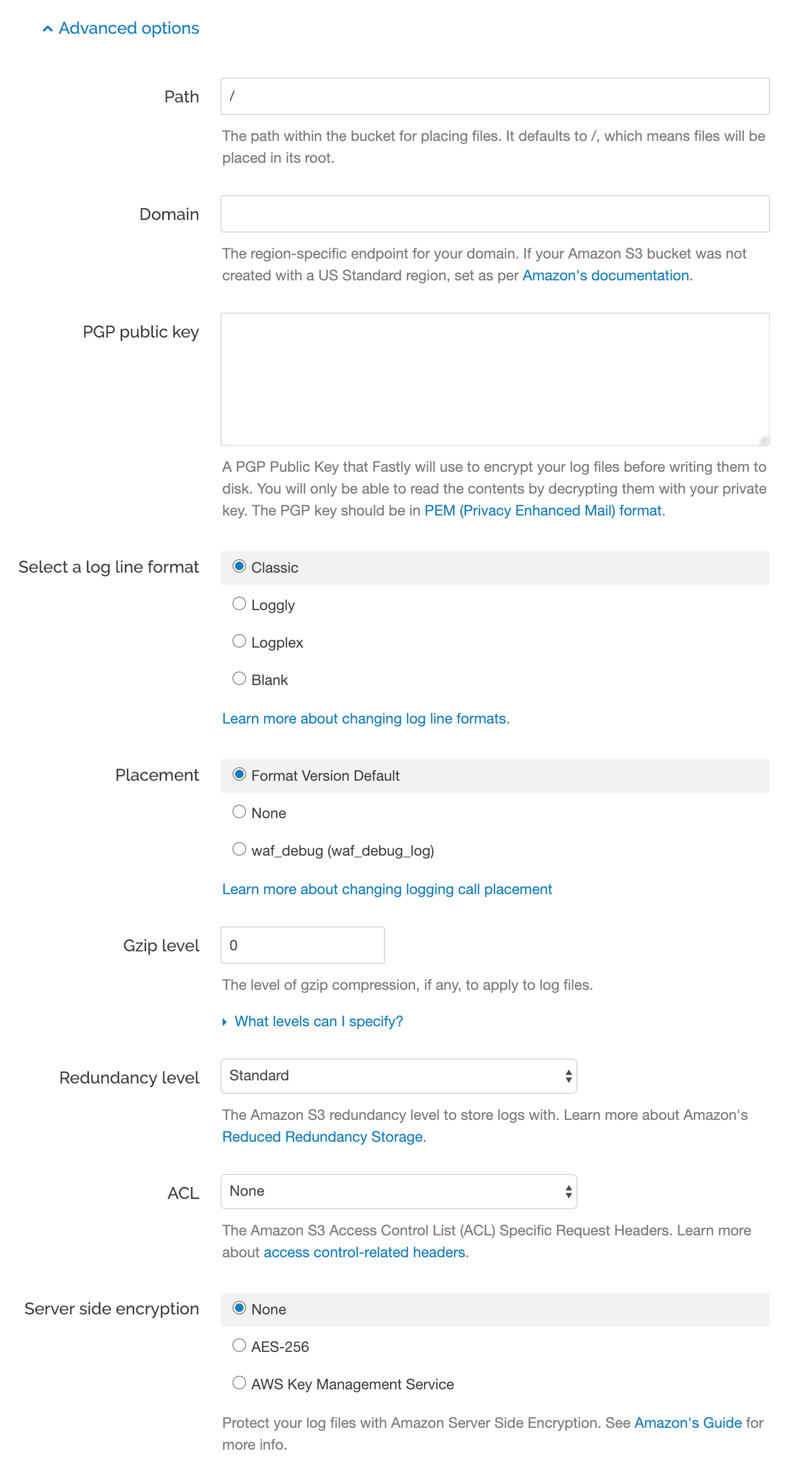
Vector
Vector is a tool that can collect, transform, and route your logs and metrics to your cloud storage. More information is available at:
https://vector.dev/docs/reference/configuration/sinks/aws_s3/
A sample Vector configuration file for pushing logs to S3 for storage and a ChaosSearch implementation follows:
[sinks.my_sink_id]
# REQUIRED - General
type = "aws_s3" # must be: "aws_s3"
inputs = ["my-source-id"]
bucket = "my-bucket"
region = "us-east-1"
# OPTIONAL - General
healthcheck = true # default
hostname = "127.0.0.0:5000"
# OPTIONAL - Batching
batch_size = 10490000 # default, bytes
batch_timeout = 300 # default, seconds
# OPTIONAL - Object Names
filename_append_uuid = true # default
filename_extension = "log" # default
filename_time_format = "%s" # default
key_prefix = "date=%F/"
# OPTIONAL - Requests
compression = "gzip" # no default, must be: "gzip" (if supplied)
encoding = "ndjson" # no default, enum: "ndjson" or "text"
gzip = false # default
rate_limit_duration = 1 # default, seconds
rate_limit_num = 5 # default
request_in_flight_limit = 5 # default
request_timeout_secs = 30 # default, seconds
retry_attempts = 5 # default
retry_backoff_secs = 5 # default, seconds
# OPTIONAL - Buffer
[sinks.my_sink_id.buffer]
type = "memory" # default, enum: "memory" or "disk"
when_full = "block" # default, enum: "block" or "drop_newest"
max_size = 104900000 # no default, bytes, relevant when type = "disk"
num_items = 500 # default, events, relevant when type = "memory"Updated 9 months ago
